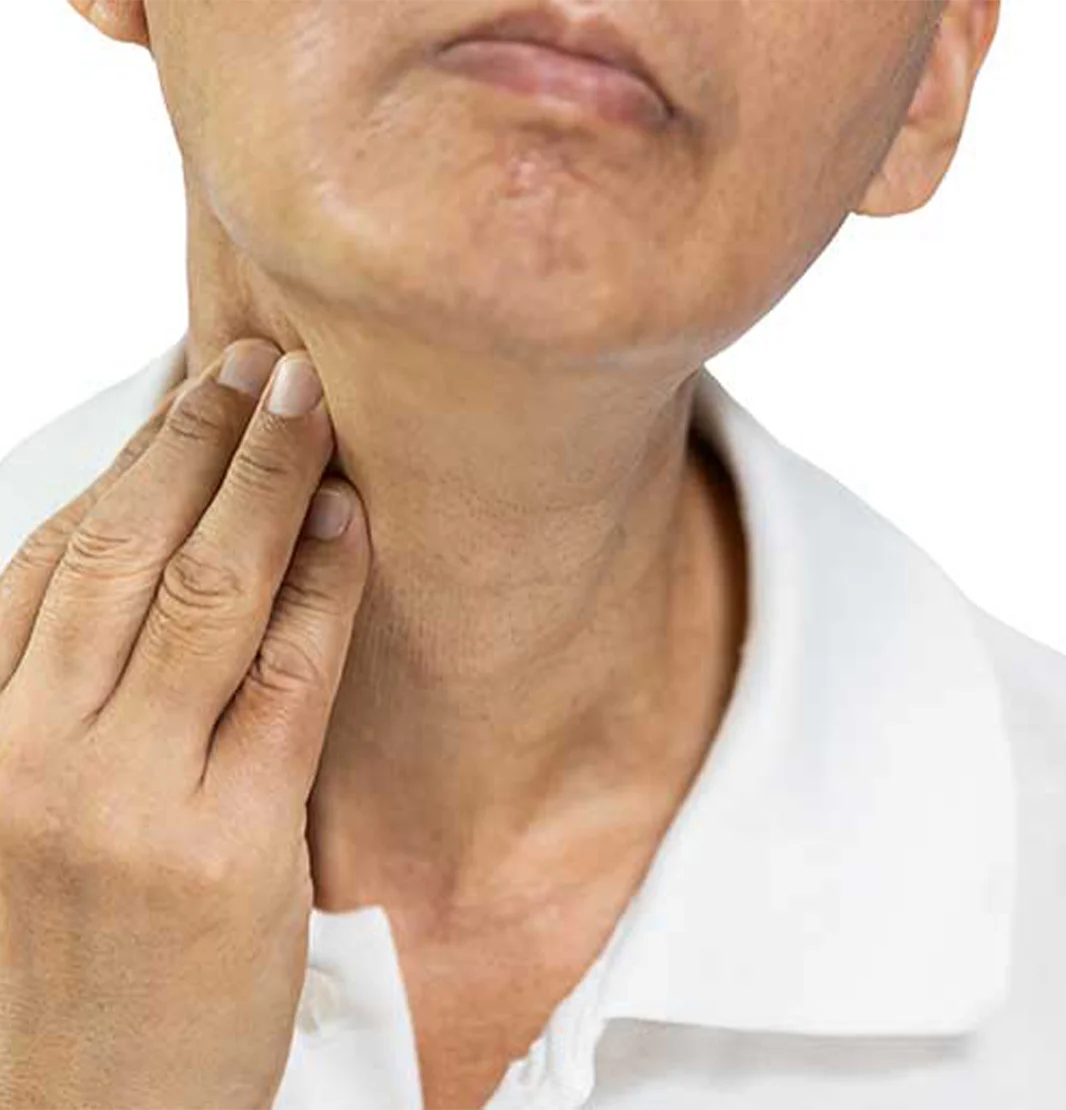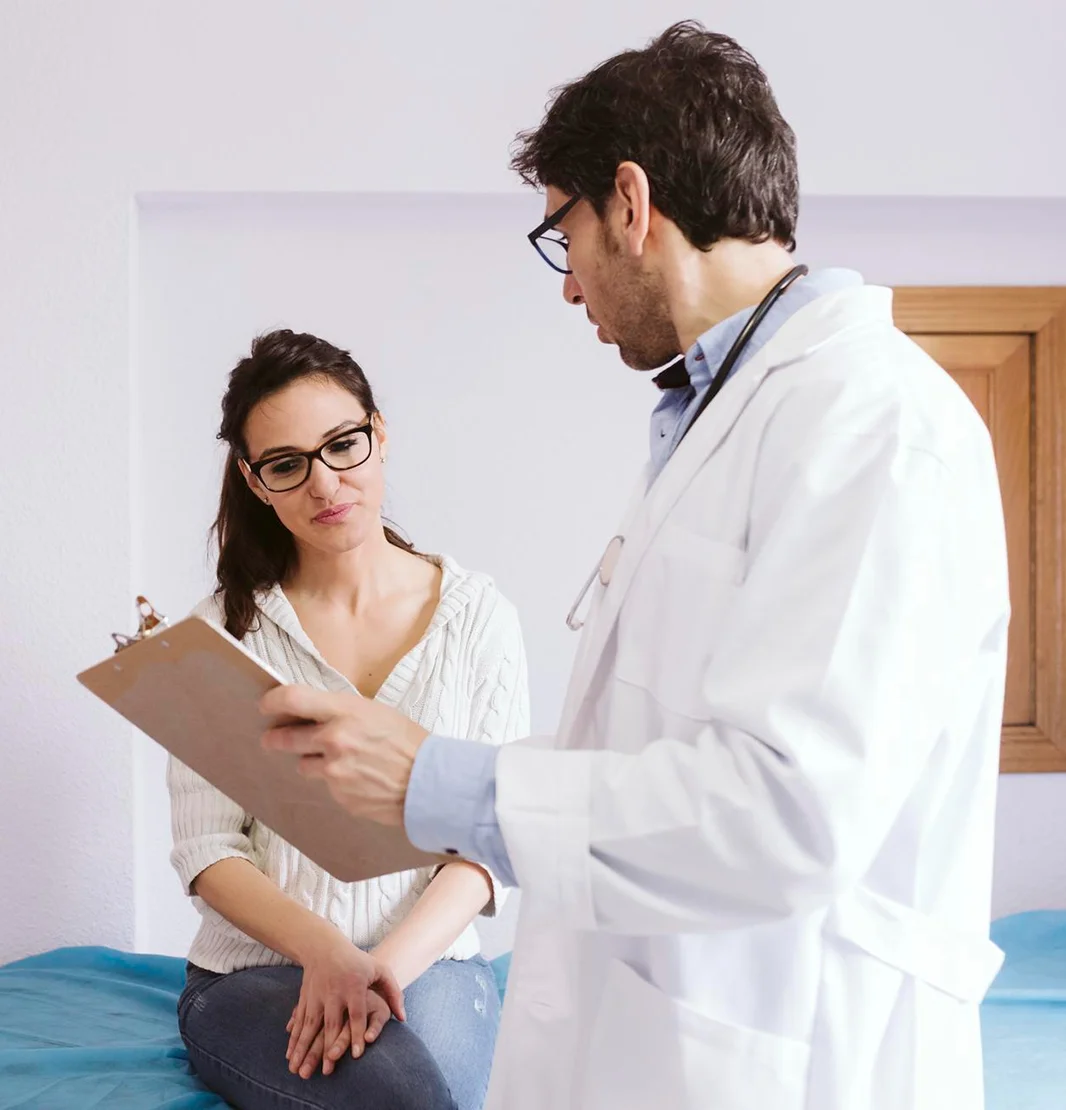
Welcome to Bhagwan Mahaveer Cancer Hospital & Research Centre (BMCHRC), a beacon of hope and healing for individuals confronting Non-Hodgkin's Lymphoma. Our institution stands as a pillar of comprehensive care, where cutting-edge treatments merge with compassionate support to guide patients towards optimal health outcomes.
At BMCHRC, we are committed to providing comprehensive care and support for individuals affected by Non-Hodgkin's Lymphoma (NHL). Our specialized team of Oncologists, Hematologists, Nurses, and Support staff is dedicated to delivering personalized treatment plans and holistic support services tailored to each patient's unique needs.

Non-Hodgkin's Lymphoma is a type of Cancer that affects the lymphatic system, which is a vital part of the body's immune system. It originates in lymphocytes, a type of White Blood Cell, and can occur in lymph nodes or other lymphoid tissues throughout the body.
.webp)
The exact cause of Non-Hodgkin's Lymphoma is often unknown, but several risk factors may increase the likelihood of developing the disease. These include age, compromised immune system, certain infections (such as Epstein-Barr virus or HIV), exposure to certain chemicals or radiation, and family history of lymphoma.

The signs and symptoms of Non-Hodgkin's Lymphoma can vary depending on the type and location of the Cancer. Common symptoms may include painless swelling of lymph nodes, Fever, Night sweats, unexplained weight loss, Fatigue, and itching. It's important to seek medical evaluation if these symptoms persist or worsen.

Diagnosing Non-Hodgkin's Lymphoma typically involves a combination of physical examination, imaging tests (such as CT Scans or PET Scans), biopsy of an affected lymph node or tissue, and laboratory tests to analyze blood and lymphocyte counts. Accurate diagnosis is crucial for determining the appropriate treatment approach.
Meet our esteemed team of medical professionals, each equipped with years of specialized expertise and unwavering dedication to patient care.
Request a callback from our healthcare specialist
Non-Hodgkin's Lymphoma Encompasses a Diverse Group Of Cancers that originate in Lymphocytes. Common types include Diffuse Large B-Cell Lymphoma, Follicular Lymphoma, Mantle Cell Lymphoma, and Marginal Zone Lymphoma, among others.
Risk Factors for Non-Hodgkin's Lymphoma include age, compromised immune system, certain infections (such as Epstein-Barr virus or HIV), exposure to certain chemicals or Radiation, and family history of Lymphoma.
Diagnosis involves physical examination, Imaging Tests (such as CT Scans or PET Scans), biopsy of affected tissue, and laboratory tests to analyze blood and lymphocyte counts.
Treatment may include Chemotherapy, Immunotherapy, Radiation Therapy, Targeted Therapy, Stem Cell Transplantation, or a combination of these approaches, depending on the type and stage of the disease.
Treatment for Non-Hodgkin's Lymphoma can cause various side effects, including Fatigue, Nausea, Vomiting, Hair Loss, increased risk of infections due to Low Blood Cell counts, and long-term complications such as Infertility or secondary Cancers.
Many patients with Non-Hodgkin's Lymphoma achieve remission or long-term control of the disease with treatment. While some types of NHL are considered curable, others may require ongoing management to control the cancer.
Adopting a healthy lifestyle can complement medical treatment for Non-Hodgkin's Lymphoma. This includes maintaining a balanced diet, staying physically active, managing stress, getting adequate rest, and avoiding tobacco and excessive alcohol consumption.
While most cases of Non-Hodgkin's Lymphoma are not hereditary, certain genetic factors and family history may play a role in some cases. However, the majority of NHL cases occur sporadically, without a clear genetic link.
While many patients achieve remission with treatment, Non-Hodgkin's Lymphoma can recur even after successful initial treatment. Regular follow-up appointments and ongoing monitoring are essential to detect any signs of relapse early and provide prompt intervention if necessary.
Supporting a loved one with Non-Hodgkin's Lymphoma involves offering emotional support, accompanying them to medical appointments, helping with daily tasks, and actively listening to their concerns. Educate yourself about the disease and its treatment options to provide informed support and encouragement throughout their journey.
Non-Hodgkin's Lymphoma is staged based on the extent of the disease's spread. The stages range from I (limited to a single lymph node region or organ) to IV (spread to multiple lymph nodes or organs). Each stage may be further classified as A (without systemic symptoms) or B (with systemic symptoms such as fever, night sweats, or weight loss).
While treatment for Non-Hodgkin's Lymphoma can be effective, it may also have long-term effects on various organs and systems in the body. These effects may include Heart Problems, Lung Damage, Nerve Damage, Hormonal Imbalances, and an increased risk of secondary cancers. Regular follow-up care is essential to monitor for and manage any potential long-term effects.
Some patients may explore alternative or complementary Therapies, such as Acupuncture, Massage Therapy, herbal supplements, or mind-body practices like yoga or meditation, to help manage symptoms or improve overall well-being. However, it's important to discuss these options with your healthcare team to ensure they are safe and appropriate, and to avoid any interactions with conventional treatment.
The outlook for patients with Non-Hodgkin's Lymphoma varies depending on several factors, including the type and stage of the disease, the patient's overall health, and response to treatment. With advances in treatment modalities, many patients achieve remission or long-term control of the disease, leading to improved survival rates and quality of life.
Clinical Trials are research studies that evaluate new treatment approaches or interventions for Non-Hodgkin's Lymphoma. Patients interested in participating in clinical trials can discuss this option with their healthcare team, who can provide information about available trials, eligibility criteria, potential benefits and risks, and how to enroll in a trial if suitable.